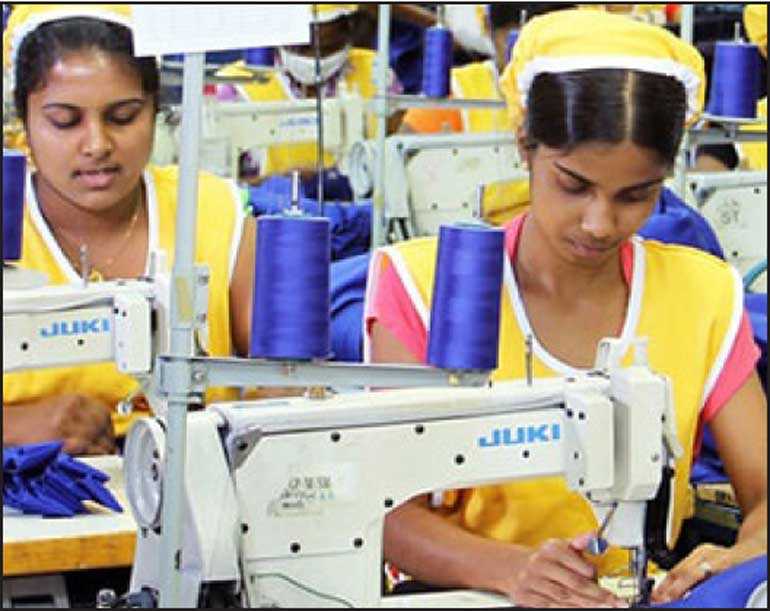Tuesday Feb 17, 2026
Tuesday Feb 17, 2026
Friday, 10 April 2020 00:00 - - {{hitsCtrl.values.hits}}

Facing an unprecedented downturn with estimated losses of over $ 1.5 billion, the apparel industry yesterday called on the Government to bend its ear to several proposals focused on mitigating the impact of COVID-19, including reopening factories as early as possible, State support for companies with less than 3000 employees, suspending EPF and ETF payments, and expanding working capital.
Joint Apparel Association Forum (JAAF) Chairman A. Sukumaran, releasing a statement, appealed for urgent Government support to protect Sri Lanka’s second largest foreign exchange earner, which employs 400,000 people and earned $ 5.6 billion last year.
“When compared to the last fiscal year, JAAF foresees an immediate contraction of $ 1.5 billion in Sri Lankan apparel exports during the 3-month period ending in June. However, the damage does not stop there, as we expect further demand contractions that could result in reduction of apparel exports by an additional 30-40% after June, in a best-case scenario,” the statement said.
The members of JAAF believe that extreme measures are inevitable, unless there is intervention and support to avert the impending disaster. The organisation warned that while most companies have pledged to pay March salaries, a vast majority of the industry will struggle to pay salaries from the end of April onwards, due to the mass cancellation of orders and the severe decline of working capital.
“Despite the challenges of the situation, the primary goal of industry participants is to do what is best by the workforce. While measures such as pay cuts are inevitable, most players are considering relative income bands and ensuring any reductions are reasonable and do not adversely impact lives to an unreasonable degree.”
JAAF acknowledged that the Government has already taken steps to support them but appealed for additional relief, listing out fresh measures. These included measures to reopen apparel factories in their full capacity as early as possible to avoid losing business to competitor countries such as Bangladesh, Cambodia, Vietnam, and Indonesia.
“Secondly, JAAF requests a means of sustenance for employees who will have no work to perform from April, for companies employing less than 3,000 people. JAAF is confident that large and strong players will have their own mechanisms in place.”
JAAF also called on the Government to suspend Employees Provident Fund (EPF) and Employees Trust Fund (ETF) payments for six months for both employers and employees.
“Another measure was to assist with working capital. Finally, directives were given to banks to grant the loan beyond Rs. 25 million and sufficient enough to pay a minimum of two months’ basic salary being paid by an applicant company who is willing and capable of bearing that liability, since we are advised by commercial banks that Central Bank had instructed outside the circular to limit the loan to Rs. 25 million per company for better distribution and that banks be directed to provide above loan without collateral, but under the refinancing scheme of the Government.”
The statement appealed to the Government to consider the proposals with “utmost urgency” as failure to do so would result “in the non-existence of an industry to reopen once the global economy normalises.”
“Export-oriented SMEs are at a very difficult situation compared to large players, and our members who are catering to the domestic market also will be in a dire status as a minimum of 50% of their turnover is totally lost as a result of missing this festive season. Thus, the fate of Sri Lanka’s apparel industry which 2 million citizens of this country rely on is dependent on the effectiveness and speed at which these proposals can be implemented.”